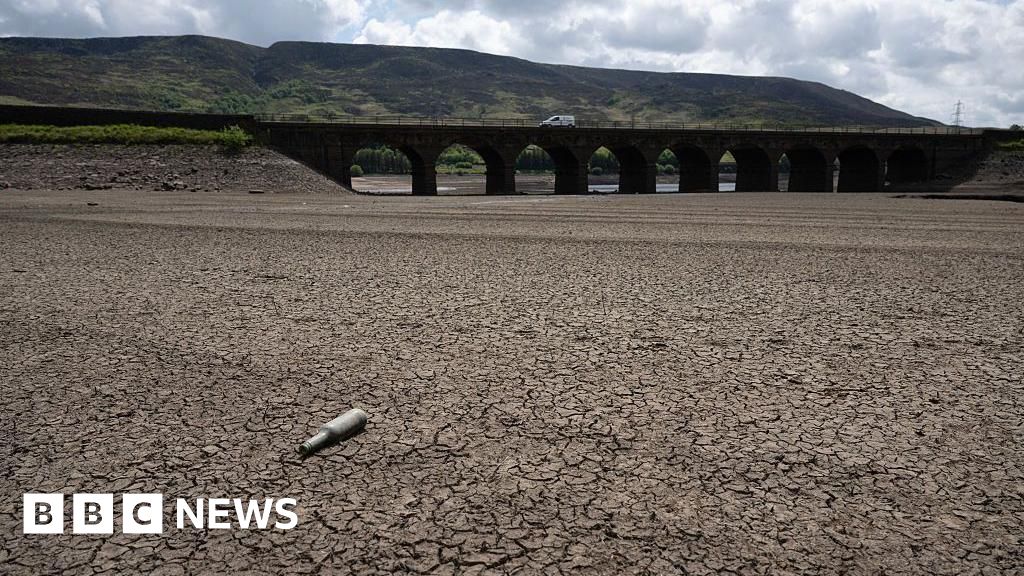ARTICLE AD BOX
 Image source, Getty Images
Image source, Getty Images
By Matt McGrath
Environment correspondent
The record-breaking UK heat experienced in 2022 will be regarded as a cool year by the end of this century, the Met Office says.
Their report shows that last year was "extraordinary", with a heatwave pushing the UK record over 40C for the first time.
Hot years like 2022 will be the average by 2060, if carbon emissions are as expected, the authors say.
By 2100, it would be a cooler than average year across the UK.
Climate change is having an increasing impact on all parts of the UK, playing a key role in pushing last year's temperatures to record highs.
2022 was the warmest year in UK records dating back to 1884, and it also broke the Central England temperature series that goes back to 1659.
The UK's highest daily temperature last year was 40.3C, recorded at Congingsby in Lincolnshire, which beat the previous high mark by a large margin.
This was not an isolated incident, according to the Met Office, with persistent warmth prevalent across the year.
The Met Office's State of the UK Climate report for 2022 shows that apart from December, every month last year was warmer than the 1991-2020 average.
As well as persistent warmth, one key aspect of the study shows that extreme temperatures in the UK are changing much faster than the average.
"The actual extremes that we're seeing, the highest, the hottest days, those are really increasing markedly too," said lead author Mike Kendon.
"We're going to see very, very many more days, exceeding 30, 32 or 35C. So warmer summers will become very much more frequent, and hot days will become very much more frequent."
Image source, Getty Images
Image caption,Drought was declared in several regions of the UK as a result of the heatwave
The authors say that the UK's record year was made much more likely by climate change.
"The heatwave that is happening now across southern Europe, the heatwave that we saw last year, all of these things are fitting into a pattern," said Mr Kendon.
"These things emphasise that our climate is changing. And it's changing now, and it's changing fast."
Looking forward, under a medium emissions scenario, there's a 1 in 15 chance that the UK would hit 40C in any one year.
"That trend for (extreme temperatures) is going to increase as we go through this this century," said Prof Liz Bentley, chief executive of the Royal Meteorological Society.
"If you look at future climate projections, we are on a path for hotter, drier summers. So 2022, for me was very much a sign of things to come in future years with our changing climate."
Earlier this month, the government's independent climate advisers warned that the UK still needed to make climate change preparations a more important priority.
The extreme 40C heat in July last year caused extensive disruption across the country, including for transport, power supply and health care.
But even though these temperatures will become increasingly likely with climate change, the UK still has much further to go to properly prepare for intense heat and other extreme events like flooding, according to its advisers.
One of the elements that might have led to a very hot year in 2022 and may explain the current wetter summer are changes in the jet stream, the fast moving winds that carry weather systems across the Atlantic to the UK.
In recent years the jet stream has shown a tendency to get stuck, meaning that weather patterns can persist or become "blocked" in place for weeks. There is a school of thought that a warming climate is causing this change.
"I think the jury is out, but there is definitely some science showing that we are getting these much more persistent, static kind of weather patterns, similar to what we've got at the moment with the heat waves," said Prof Bentley.
"It'll be interesting to see if there's conclusive evidence that climate change has led to that. And that's going to be a pattern that we see going forward in future."
The report also underlines some other key impacts of climate across the UK last year.
The ten year period from 2013 to 2022 is the warmest ten-year period on record.
Near coast sea surface temperatures were the highest for the UK in a series dating back to 1870.
Last year was also one of least snowy years on record, compared to the last six decades.
Additional reporting by Mark Poynting.

 1 year ago
134
1 year ago
134








 English (US) ·
English (US) ·